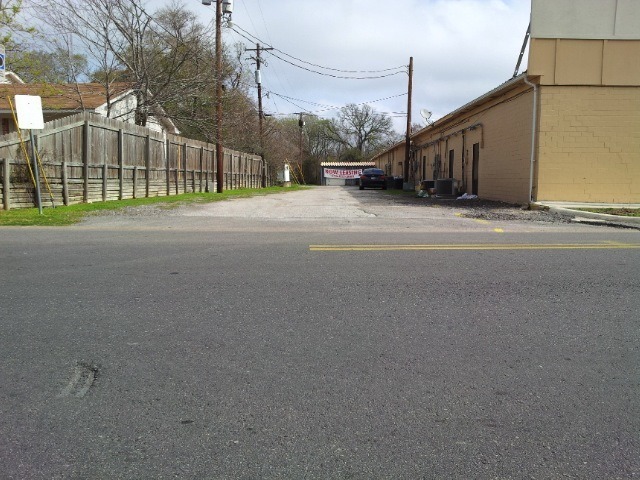Crushed Asphalt Driveway
Crushed Asphalt Driveway: Installation and Maintenance Guide
Crushed asphalt, often referred to as recycled asphalt pavement (RAP), offers homeowners a pragmatic solution for driveways that balances durability, cost-effectiveness, and environmental consideration. This material is comprised of old asphalt that has been milled into gravel-sized particles and can deliver the dependable surface that a driveway requires. Crushed asphalt driveways are known for their ability to withstand various weather conditions and their ease of maintenance.
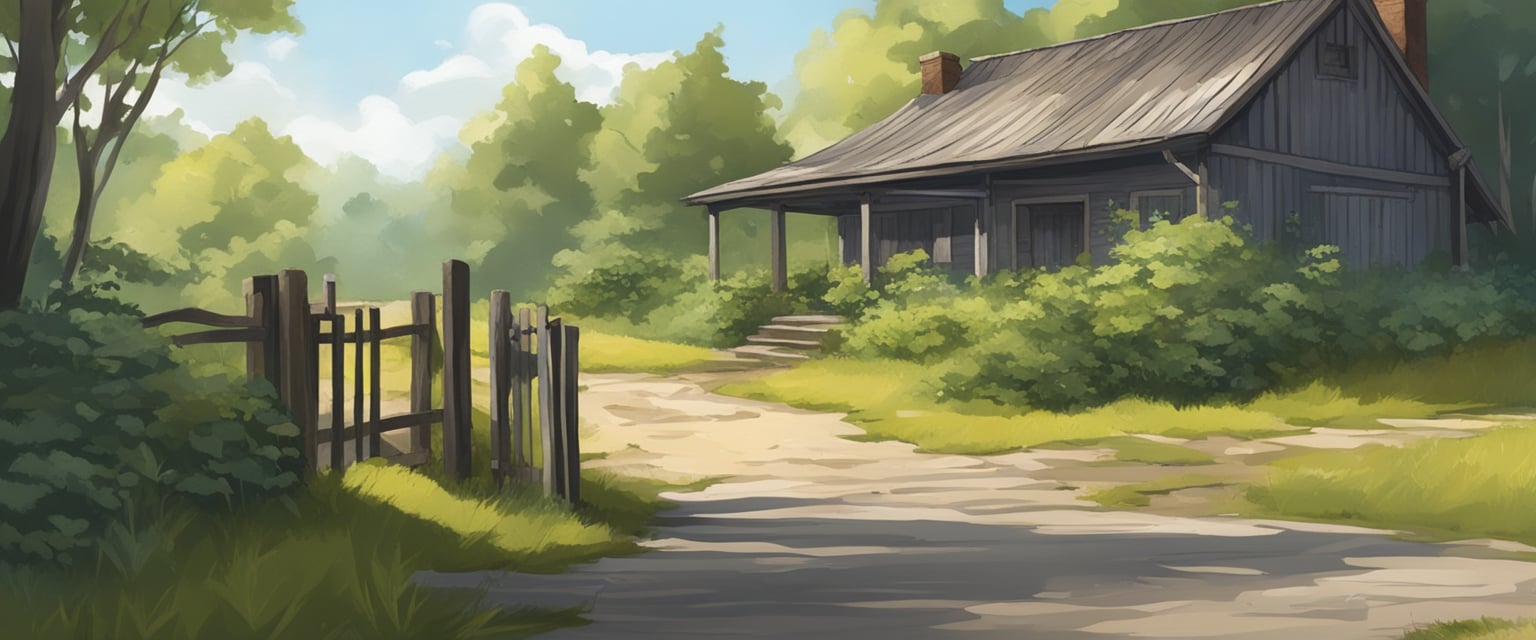
The use of crushed asphalt is an environmentally friendly option, as it repurposes material from old pavement projects. It’s not only a sustainable choice but also affordable, as it often lowers material costs and can reduce the expense of transport and disposal of old asphalt. Moreover, the compact nature of crushed asphalt gives it a sturdiness that makes it a long-last driveway option for both residential and commercial properties.
Key Takeaways
- Crushed asphalt driveways are cost-effective, eco-friendly alternatives to traditional driveway materials.
- They offer durability against weather conditions with minimal maintenance.
- These driveways can be a sustainable addition to properties looking for a long-lasting paving solution.
Benefits of Crushed Asphalt Driveways
Crushed asphalt driveways offer a range of benefits including cost savings, environmental benefits, enhanced durability, and low maintenance needs. These advantages make them a practical choice for homeowners and municipalities alike.
Cost Effectiveness
Crushed asphalt is widely recognized as a cost-effective material because it involves using recycled asphalt, significantly reducing the costs associated with materials and production. Homeowners save money due to the lower cost of raw materials and the reduced labor involved in laying a crushed asphalt driveway compared to conventional paving materials.
Environmental Advantages
The use of crushed asphalt supports eco-friendly practices by recycling asphalt that would otherwise reside in landfills. This not only conserves raw materials but also reduces the carbon footprint involved with the mining and processing of new asphalt, making it an eco-friendly choice for paving.
Durability and Lifespan
Durability is a notable benefit of a crushed asphalt driveway. These driveways are known for their resilience against weather conditions and can be long-lasting with proper installation. The recycled materials in the asphalt mix maintain a compact structure, enhancing the driveway’s lifespan.
Maintenance Requirements
The maintenance demands of a crushed asphalt driveway are comparatively low. It naturally resists the formation of potholes and cracks, which are common issues with alternative materials. Hence, it ensures a low-maintenance surface that can retain its quality with minimal upkeep over the years.
Materials and Composition
In the construction of a crushed asphalt driveway, the materials and composition play a crucial role in determining its durability and performance. The section delves into the specifics of the makeup of crushed asphalt and the quality of the recycled materials used.
Understanding the Makeup
Crushed asphalt, also known as Recycled Asphalt Pavement (RAP), is composed of recycled asphalt materials that have been milled into small pieces. The base of RAP typically consists of aggregate—a combination of stone, sand, and gravel—coated with asphalt cement, which is a sticky, black substance derived from crude oil.
- Aggregate Composition:
- Stone: Provides strength and durability.
- Sand: Fills in gaps and lends stability.
- Gravel: Ensures proper drainage and structural integrity.
- Asphalt Cement: It acts as a binder, holding the aggregate together and providing the waterproof qualities that make asphalt a valuable paving material. Its adhesive properties are retained even after recycling, which contributes to the excellent bonding qualities of crushed asphalt.
Quality of Recycled Materials
The quality of recycled materials in crushed asphalt is pivotal for ensuring a high-performing driveway. Recycled asphalt is sourced from old pavement, which is then processed to remove debris and screened to size. The result is an eco-friendly material that maintains many of the beneficial properties of traditional asphalt but is more cost-effective.
- Eco-Friendly Aspect: Uses less new resources and repurposes existing asphalt.
- Cost-Effectiveness: Fewer resources required in terms of materials, production, and labor.
The integrity of the aggregate and the asphalt cement quality are assessed to guarantee that the RAP will perform comparably to new asphalt. High-quality recycled materials can lead to a driveway surface that withstands weather conditions and heavy use.
Design and Preparation
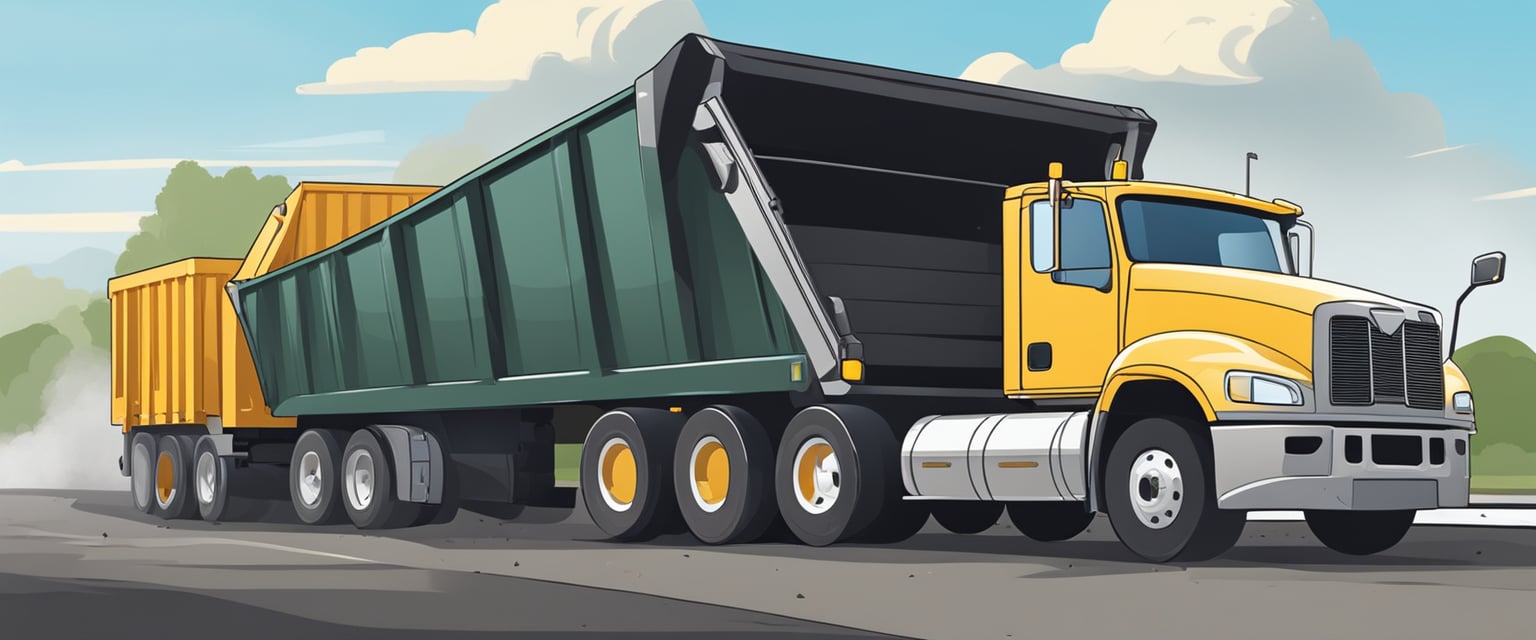
When considering a crushed asphalt driveway, attention to design and meticulous preparation are fundamental. Proper planning ensures longevity and functionality in alignment with the property’s layout and environmental conditions.
Planning Your Driveway
In planning a driveway, it’s important to start with the size and location. These aspects affect not only the aesthetics but also the practical use and regulatory compliance. The typical driveway width is about 10 to 12 feet, but this can vary based on the expected vehicle traffic. Moreover, the driveway should ideally have direct access to the road and be located to minimize the removal of existing trees and landscaping.
Determining the Correct Depth
The depth of the crushed asphalt plays a crucial role in the durability of the driveway. It should accommodate the expected load without risk of premature wear. A standard driveway depth is usually about 2 to 3 inches of crushed asphalt, but this may need to be increased for areas with heavy vehicle usage.
Subbase and Surface Preparation
The subbase is the foundation of the driveway and must be solid, stable, and properly leveled. The process typically begins with removing topsoil and organic material which could lead to settling. Afterward, a layer of crushed stone is applied to create a stable base. Slope is also an essential consideration; the surface must be graded to encourage water runoff away from the driveway and property structures to prevent water damage or pooling.
Installation Process
The success of a crushed asphalt driveway installation hinges on meticulous planning, high-quality materials, and the employment of professional techniques.
Steps for Driveway Installation
Preparation: Before laying any paving material, a solid base is critical for durability. This involves excavating the area, grading it, and ensuring proper drainage. The installation of a granular base, which varies in thickness depending on soil conditions, provides stability for the asphalt layer.
Applying the Asphalt: A typical crushed asphalt driveway consists of a two-inch layer of asphalt over the well-compacted base. Uniform spreading of the crushed asphalt is followed by thorough compaction, which can be achieved with heavy rollers, enhancing the surface’s durability and smoothness.
Labor and Equipment
Skilled laborers are essential, working in unison with the heavy equipment necessary for this type of project. Common machines used during installation include:
- Excavators: For base preparation and removal of existing material.
- Steamrollers: To compact the base material and asphalt, ensuring a flat, stable surface.
Each step of the process relies on coordination between the laborers and machinery to maintain efficiency.
Common Installation Mistakes to Avoid
Inadequate Base Preparation: A poorly prepared base can lead to significant issues, such as cracks or potholes. Proper base compaction is a must to prevent future problems.
Improper Material Handling: Asphalt must be handled properly; if it cools too quickly before compaction, it loses its flexibility, which is crucial to withstand various weather conditions.
Avoiding these mistakes ensures a durable, long-lasting driveway and effective use of the paving material, maximizing the return on the installation cost.
Cost Factors
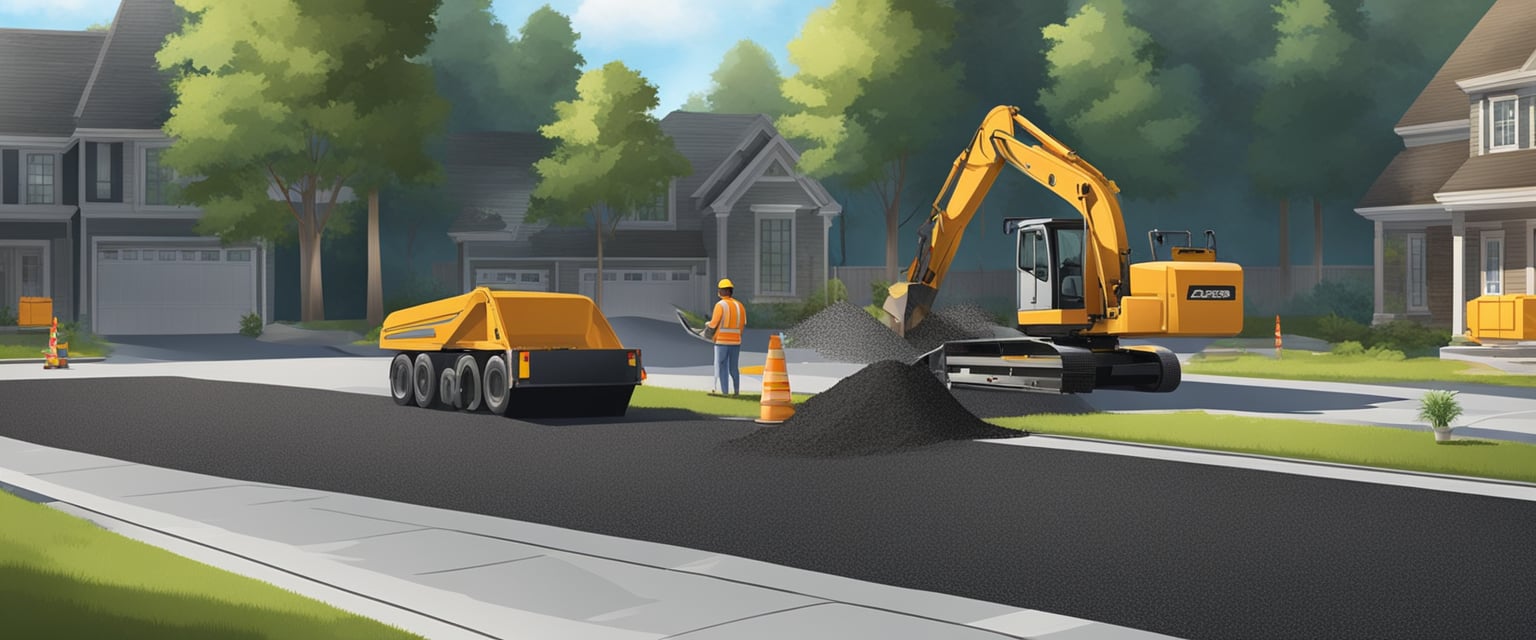
When considering a crushed asphalt driveway, one must carefully evaluate the costs involved. The final expense is contingent upon several aspects, ranging from the size of the area to the depth of the material applied.
Calculating Expected Expenses
To determine the expected expenses for a crushed asphalt driveway, a homeowner should first measure the area’s square footage. Costs are typically estimated on a per square foot basis, with current rates positioned between $2 to $5 per square foot. The depth and quality of the materials also influence the calculation, requiring a precise volume assessment for accurate budgeting.
Variables Affecting Cost
Several variables affect the overall cost of installation. Primarily, the geographic location of the property can play a significant role, with certain areas having higher material and labor costs. Additionally, the driveway’s size and placement on the property contribute to variations in price. For instance, a large driveway or one with complex curves will necessitate more material and potentially more intricate labor, thus increasing the cost. It’s important to note that while crushed asphalt is generally budget-friendly and a sound investment, the longevity and maintenance requirements should also be considered to ensure it aligns with the homeowner’s long-term financial planning.
Comparisons to Other Driveway Materials
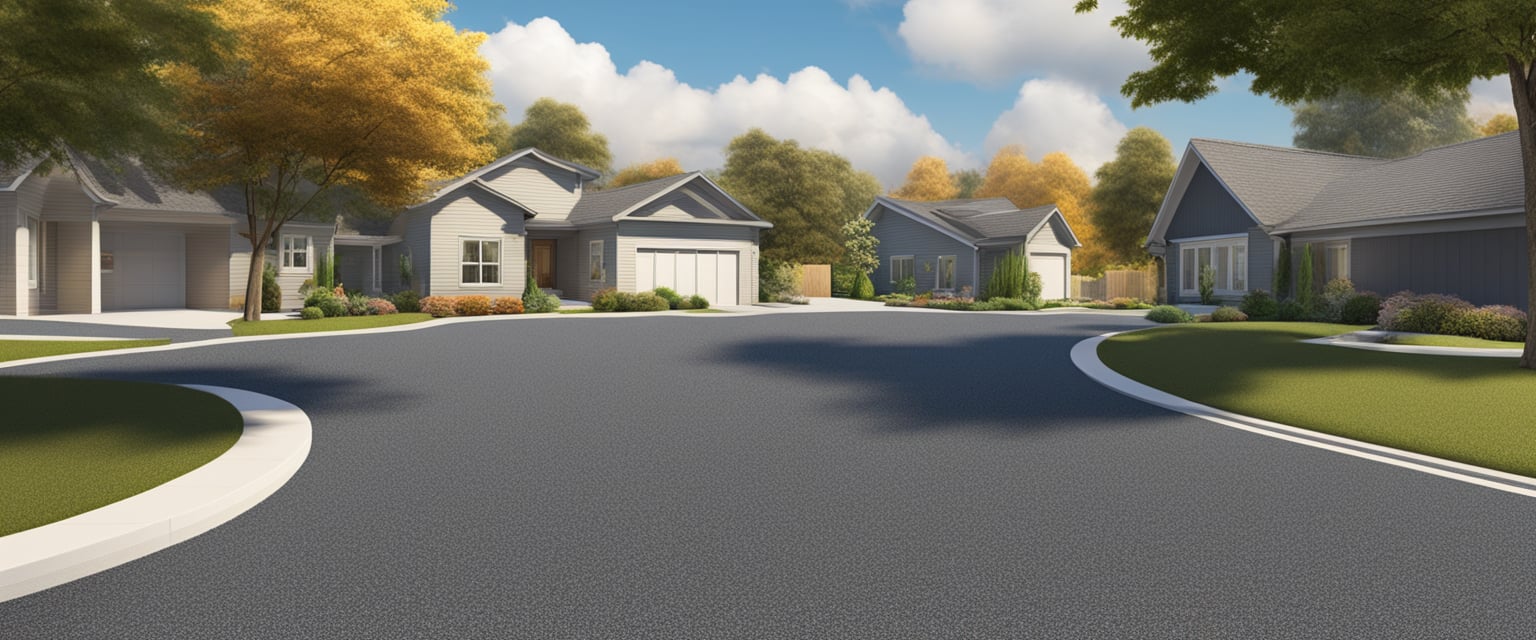
When considering paving options for driveways, crushed asphalt stands as a budget-friendly and environmentally conscious alternative to concrete and gravel driveways.
Crushed Asphalt vs Concrete
Durability and Maintenance: Crushed asphalt driveways are recognized for their durability and excellent bonding qualities. They tend to withstand rain and snow well, reducing flooding risk. In contrast, concrete driveways, while also durable, can crack over time and may require more maintenance to repair such damage.
Cost: When it comes to cost, a major advantage is that crushed asphalt is typically more affordable than concrete. The process involves fewer resources, which translates to lower production and labor costs. Concrete driveways, according to estimates, can cost between $5 to $7 per square foot, making them a pricier option.
Crushed Asphalt vs Gravel Driveways
Appearance and Composition: A crushed asphalt driveway presents a smooth, compact black appearance, which some homeowners prefer for its neat look compared to the rougher look of gravel. It contains tar that naturally holds together the gravel and sand from the asphalt, thus potentially minimizing dust and debris.
Eco-friendliness: Another point to consider is sustainability. Crushed asphalt is made of recycled materials, thus repurposing what would otherwise be waste. On the other hand, gravel driveways, while natural, don’t offer the same eco-benefits of recycling existing materials.
Taking these specific factors into account can help in making an informed decision when comparing driveway materials in terms of appearance, cost-efficiency, and environmental impact.
Maintenance and Repairs
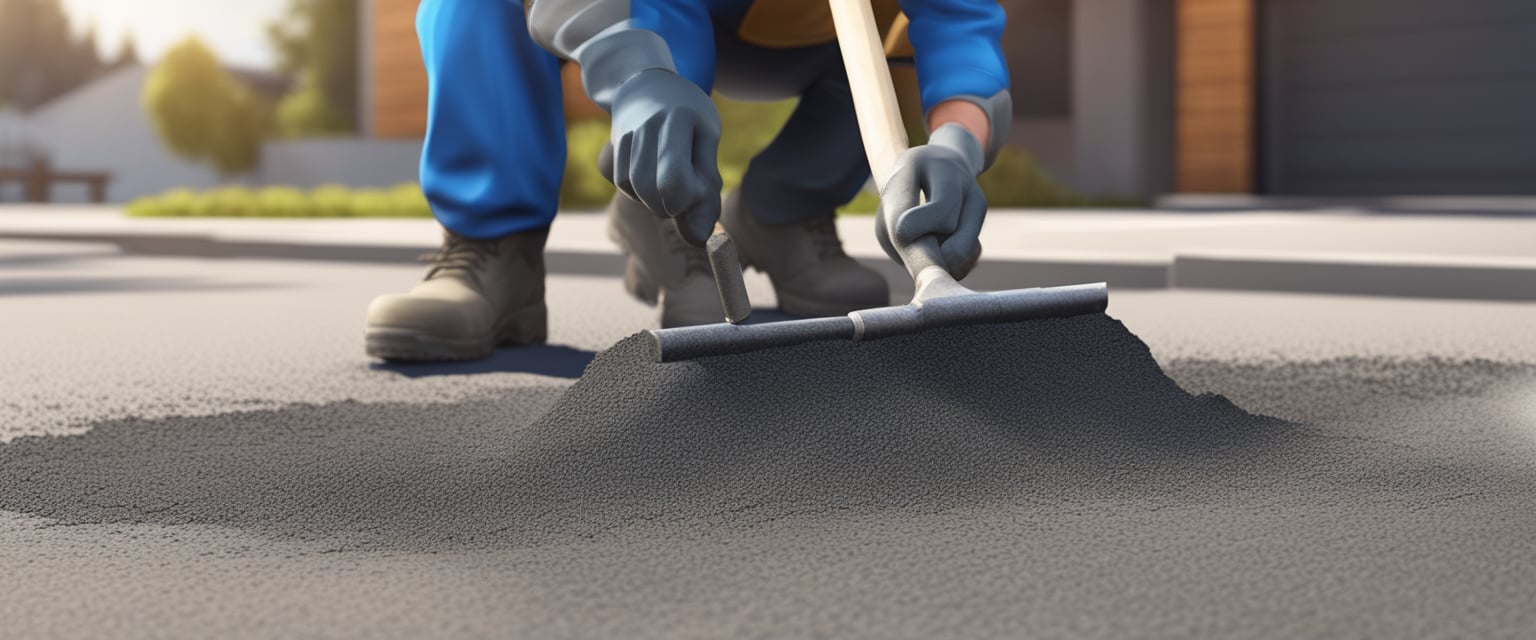
Maintaining a crushed asphalt driveway is crucial for its longevity and aesthetic appeal. Addressing repairs such as potholes and cracks promptly can prevent further damage and reduce long-term costs.
Regular Upkeep Practices
Regular maintenance of a crushed asphalt driveway includes periodic sealing to prevent water penetration and weather damage. Sealing should typically be done every two to five years, depending on climate and usage. Additionally, one should sweep debris and clean oil spills to avoid surface deterioration.
- Inspect: Conduct a biannual examination for any emerging issues.
- Clean: Remove debris and fluid stains to maintain surface integrity.
- Seal: Apply a high-quality sealant for protection and extending lifespan.
Fixing Potholes and Cracks
When potholes and cracks appear, timely repairs are essential. Small cracks can be filled using an asphalt patching product, while larger cracks may require a combination of filler material and sealant to ensure a secure repair.
- Small Cracks (<1/2 inch): Fill with a rubberized asphalt-emulsion crack filler.
- Large Cracks and Potholes: Remove loose material, then fill with an asphalt patch.
Properly executed repairs not only restore the surface but can also prevent the formation of new potholes and cracks, conserving the driveway’s structural integrity over its lifetime.
Aesthetic and Practical Considerations
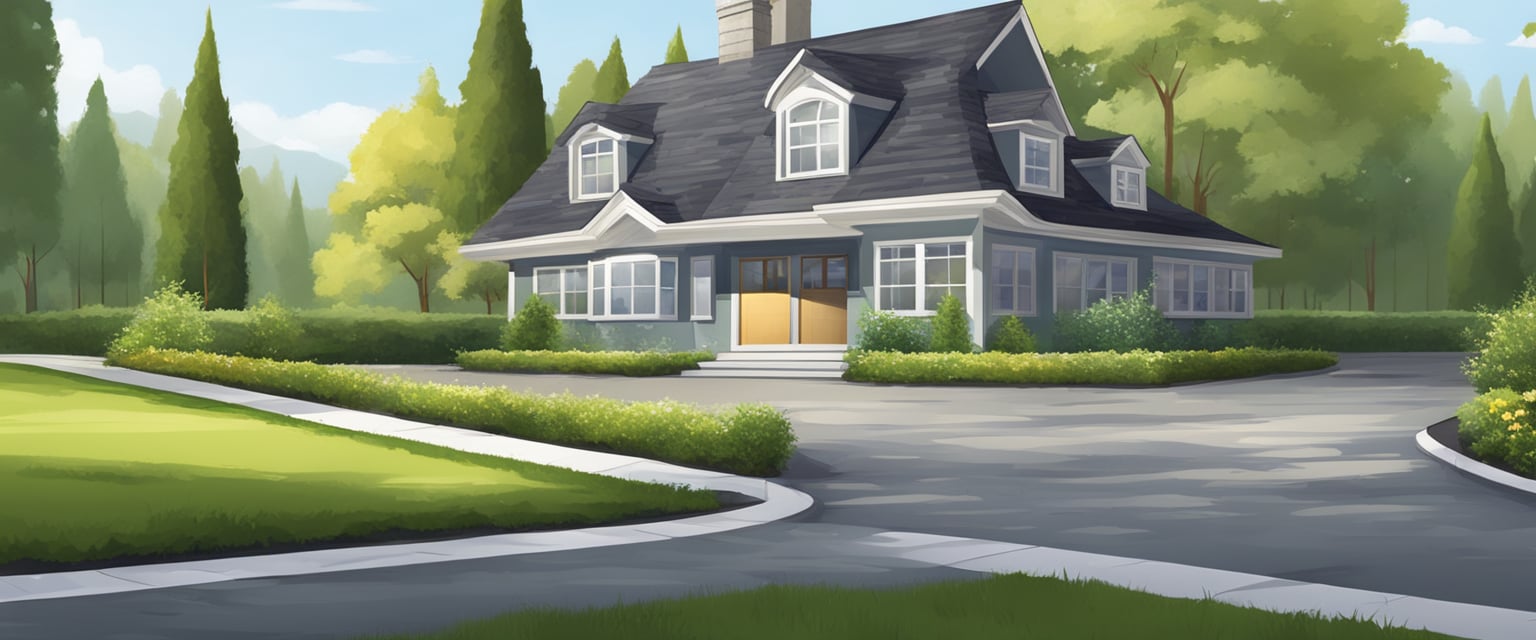
When choosing a material for driveways, homeowners often weigh the visual impact against functional performance. In terms of crushed asphalt, it offers both aesthetic qualities that enhance curb appeal and practical benefits to address common landscaping challenges, such as drainage.
Visual Appeal
Crushed asphalt driveways possess a unique look that can enhance a property’s exterior. Its rich, dark color helps it to stand out, contributing positively to the overall aesthetic of a home’s landscaping. This material tends to complement a wide range of home styles and can provide a clean yet distinctive appearance that boosts curb appeal. Over time, it may fade to a more subtle gray, blending naturally with the surroundings.
Addressing Drainage Issues
One of the practical advantages of crushed asphalt is its ability to handle water percolation. Proper installation includes a solid, compacted base that facilitates drainage, preventing water from pooling on the surface. This characteristic is essential in maintaining the driveway’s integrity and longevity, reducing the risk of water damage. Homeowners therefore not only invest in an appealing driveway solution but also one that is engineered to address potential drainage issues effectively.
Long-Term Performance
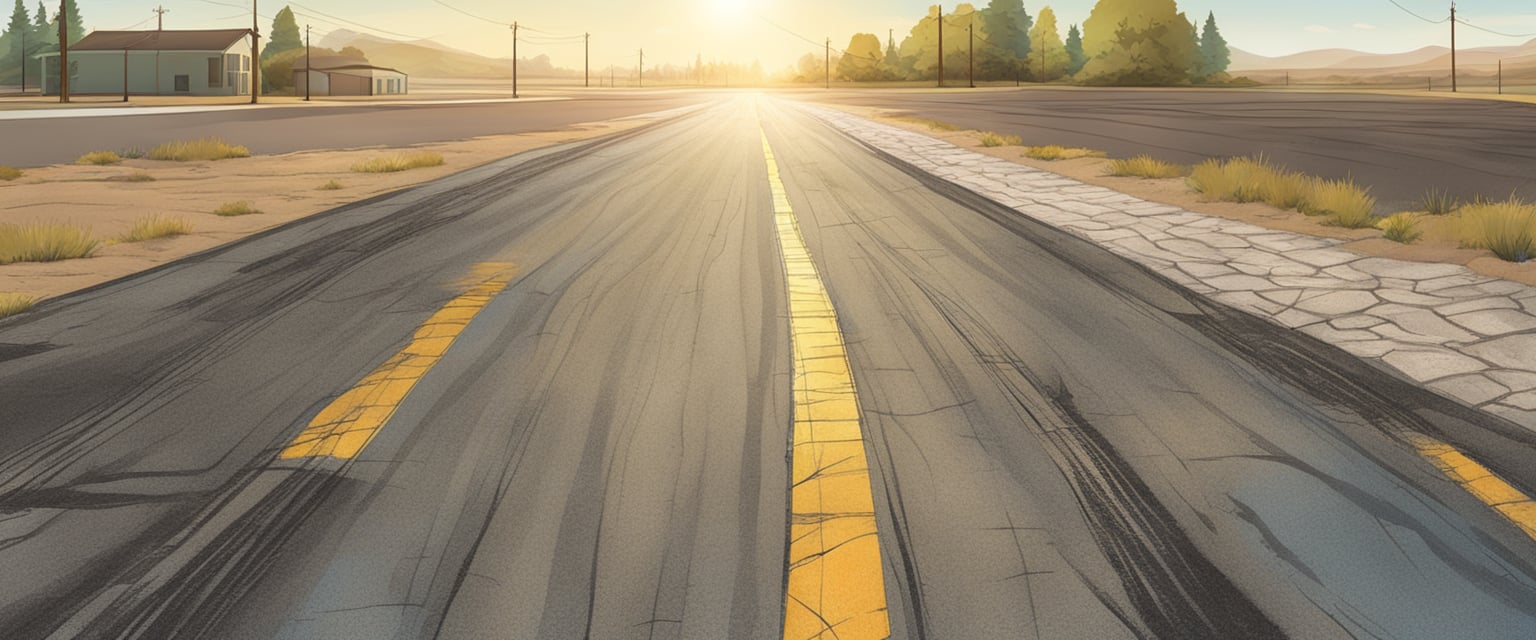
When considering the long-term performance of a crushed asphalt driveway, durability and adaptability are paramount. Both weather resistance and the ability to handle varying traffic volumes significantly impact the driveway’s lifespan.
Weather Resistance and Climate Impact
Crushed asphalt driveways display noteworthy weather resistance, partly due to their inherent flexibility which allows them to contract and expand with temperature changes without cracking. In terms of climate impact, regions with frequent rainfall can pose a challenge, as standing water may lead to the degradation of the material over time. However, with proper installation and drainage, crushed asphalt can be a reliable option even in such climates.
- Durability in Different Climates:
- Hot Climates: Can soften under extreme heat but recovers once temperatures drop.
- Cold Climates: Resists cracking from freeze-thaw cycles.
Adaptability to Traffic Volume
Heavy traffic can be a test of endurance for any driveway material. Crushed asphalt is generally suited for moderate to high traffic volumes, as it’s designed to withstand the rigors of daily use. While not as impervious as traditional asphalt, crushed asphalt can serve effectively for residential and even some commercial settings.
- Traffic Considerations:
- Light Traffic: Crushed asphalt will maintain its integrity with minimal maintenance.
- Heavy Traffic: May require more frequent surface treatments or repairs.
Considerations for Commercial Use
When evaluating crushed asphalt for commercial use, it is crucial to consider its applicability in specific settings such as parking lots and public spaces, where both durability and safety compliance are paramount.
Parking Lots and Heavy-Duty Applications
Parking lots are inherently high-traffic areas that require a resilient surface capable of withstanding constant vehicle movement. Crushed asphalt provides a practical solution, being both cost-effective and durable for such heavy-duty applications. It can adapt to ground movements, which minimizes cracking, making it a suitable choice for commercial parking lots, including those that may need to accommodate larger vehicles. For information on the adaptability of crushed asphalt in various weather conditions, visit Designing Idea.
Safety and Compliance for Public Spaces
In public spaces, the safety of pedestrians and vehicles takes priority. Crushed asphalt offers a textured surface that enhances traction, an aspect critical for safety in high-use areas. Compliance with local regulations is also a consideration; materials used must meet specific codes for public safety. The compaction process of crushed asphalt can be professionally executed to ensure a stable and consistent surface, reducing the likelihood of dust common with gravel alternatives. To learn more about how crushed asphalt holds together for improved safety, see AMP Paving.
Frequently Asked Questions
This section addresses common inquiries about the installation and characteristics of crushed asphalt driveways, including cost, benefits, durability, and environmental impact.
How much does it typically cost to install a crushed asphalt driveway?
The installation cost for a crushed asphalt driveway varies depending on the area size and geographic location, but it is generally considered to be more affordable than concrete options. Installation expenses are usually lower on flat surfaces.
What are the main advantages and disadvantages of using crushed asphalt for driveways?
Crushed asphalt is noted for being cost-effective and environmentally friendly. However, it may require multiple seal coats over time and can become messy, potentially leading to asphalt stains on clothes and carpets.
Does crushed asphalt provide a stable and durable surface for driveways?
When properly installed, crushed asphalt creates a stable and durable driveway surface. Yet, it is still subject to cracking and potholes, which can occur with improper installation or over time due to traffic and environmental conditions.
How does crushed asphalt compare to other driveway materials in terms of maintenance and longevity?
Compared to concrete, crushed asphalt driveways generally require more maintenance, such as sealing to protect against weather damage. Regardless, the maintenance processes are often straightforward, and with proper care, longevity can be comparable to other materials.
Can crushed asphalt driveways withstand extreme weather conditions and heavy traffic?
While crushed asphalt is highly durable, extreme weather and heavy traffic can still cause damage such as surface erosion or potholes, necessitating occasional repairs to maintain its stability and prolong its lifespan.
What are the eco-friendly benefits of opting for a crushed asphalt driveway over traditional options?
Choosing crushed asphalt benefits the environment as it is a recycled material, reducing landfill waste. Additionally, it leads to lower energy consumption in production compared to new materials, bolstering its eco-friendly credentials.


